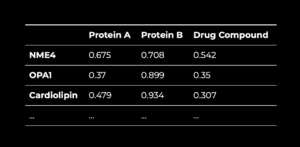
Edinburgh / San Francisco, 19 August 2022. – Vector Space Biosciences has developed a platform of computational solutions designed to accelerate the development of countermeasures against diseases associated with stressors during spaceflight (i.e. microgravity and radiation), to protect and repair the human body when on a lunar base or a mission to Mars, the company said.
The platform includes new applications related to drug repurposing, therapeutic target identification, molecular design and nutrigenomic cocktail development as well. Biotechnological and pharmaceutical research, development and commercialization, is accelerated by artificial intelligence (AI) and machine learning (ML). Biological language modeling can be applied to genes, proteins and molecular sequences like amino acids.
Spaceflight causes many changes in human health due to Galactic Cosmic Rays (GCRs) and High-energy, high-charge particles (HZEs). Therefore, scientific data engineering, language modeling and visualization are key in understanding how to protect astronauts. Vector Space will carry out a variety of experiments in space related to these issues as part of NASA’s Artemis 1 mission.
The company has a network of scientific labs and collaborators focusing on stressors related to the tumor microenvironment, matrisomes, exosomes, mitochondrial stress, muscle atrophy and ageing. Vector Space redesigns ground experiments to enable them to run during spaceflight. The company’s goal is to ensure regular launch intervals while collecting and analyzing data.
 SpaceWatch.Global An independent perspective on space
SpaceWatch.Global An independent perspective on space




